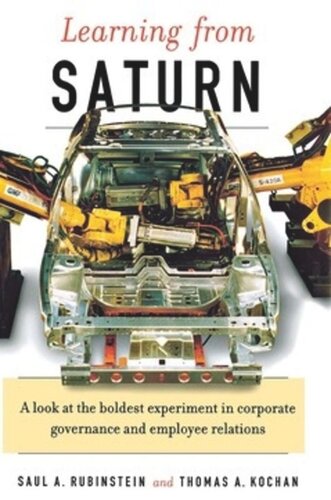

Most ebook files are in PDF format, so you can easily read them using various software such as Foxit Reader or directly on the Google Chrome browser.
Some ebook files are released by publishers in other formats such as .awz, .mobi, .epub, .fb2, etc. You may need to install specific software to read these formats on mobile/PC, such as Calibre.
Please read the tutorial at this link: https://ebookbell.com/faq
We offer FREE conversion to the popular formats you request; however, this may take some time. Therefore, right after payment, please email us, and we will try to provide the service as quickly as possible.
For some exceptional file formats or broken links (if any), please refrain from opening any disputes. Instead, email us first, and we will try to assist within a maximum of 6 hours.
EbookBell Team

0.0
0 reviewsThe last two decades of the twentieth century were a tumultuous time of innovation for business and labor. Perhaps the boldest and most far-reaching experiment in industry was the creation of the Saturn Corporation. Working together as partners, the UAW and General Motors built a new small car in Spring Hill, Tennessee, with American suppliers and American workers. Saturn's locally designed manufacturing system featured self-directed teams and the integration of union representatives into management's strategic and operational decision-making processes. Saul A. Rubinstein and Thomas A. Kochan have followed the Saturn story since its beginning in 1983. Through surveys as well as hundreds of interviews with company managers, union representatives, and employees, and with leaders of GM and the UAW, they trace the history of, and the lessons to be learned from, this "Different Kind of Company." The Saturn experiment embodied a new concept of labor-management relations, management, and organizational governance. Has it been a success or a failure? Is it relevant in the current industrial environment? What effect has it had on GM and the UAW? The authors resist overly simplistic conclusions; Saturn's strengths and limitations must be fairly assessed before the company's experience can provide lessons on the future of unions, labor-management relations, work organization, and corporate governance.